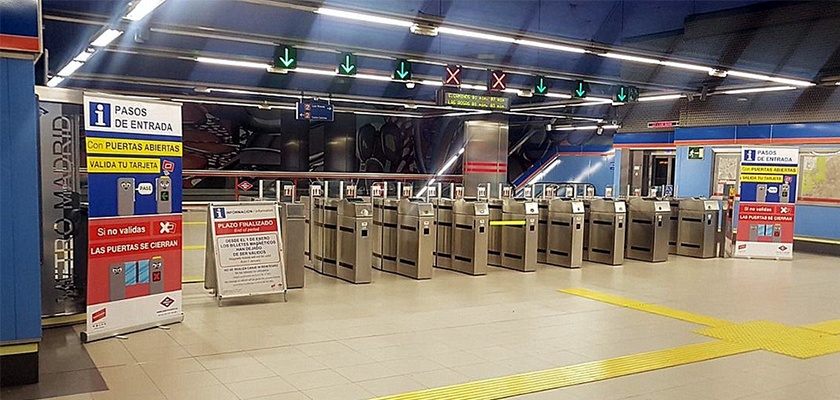In general, fare gates in public transport do not open unless passengers validate their ticket. This practice, which intends to guarantee payment of use, is implemented in the vast majority of subway systems around the world. Metro de Madrid, however, is thinking of applying another approach already existing in Tokyo: open-door validation.
The Spanish operator recently launched the pilot test of leaving fare gates open permanently. Commuters must validate their ticket before crossing. If they don’t, the doors close.
The initial trial in Alsacia station showed positive results. Consequently, Metro de Madrid extended the pilot to three more stations. These differ in passenger flow to analyze the initiative’s potential applicability and impact in all the network. The Spanish operator wants to check if the open-door validation system is viable it in the city due to its estimated benefits.
Open-door validation upsides
Metro de Madrid believes an open-door system would improve passenger flow. People would not have to wait for the doors to open, thus, mobility would be faster. This would be especially valuable during rush hours.
On the other hand, the measure would lead to significant savings in maintenance since doors are one of the most used elements in the network. Eliminating the need of opening and closing constantly would imply a drastic drop on energy consumption. Metro de Madrid estimates the activity of the doors would fall by 75%.
Deeper insight
More information on the topic in El País’s article “Metro de Madrid ensaya la validación del billete con barreras abiertas” and Metro de Madrid’s press release.



